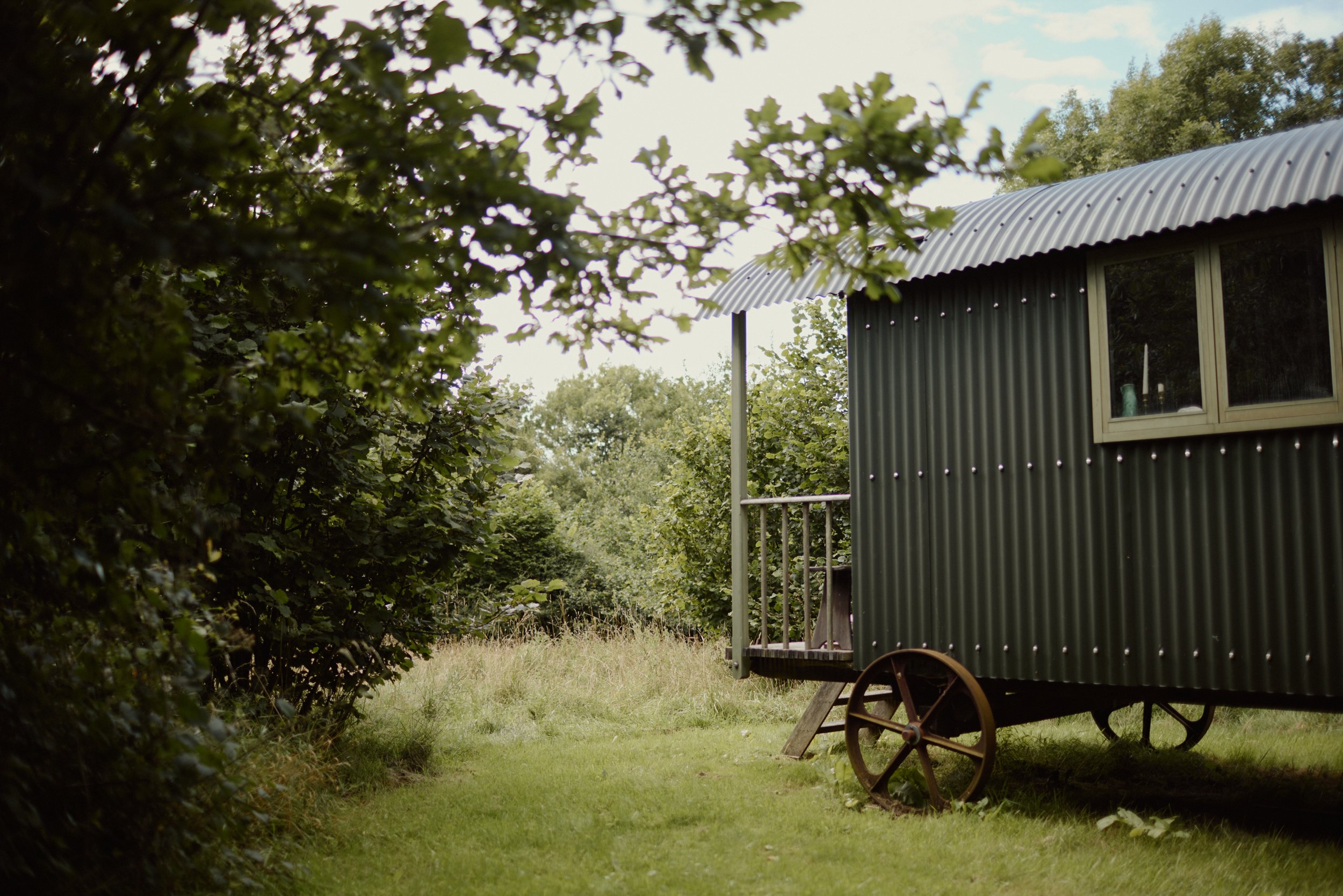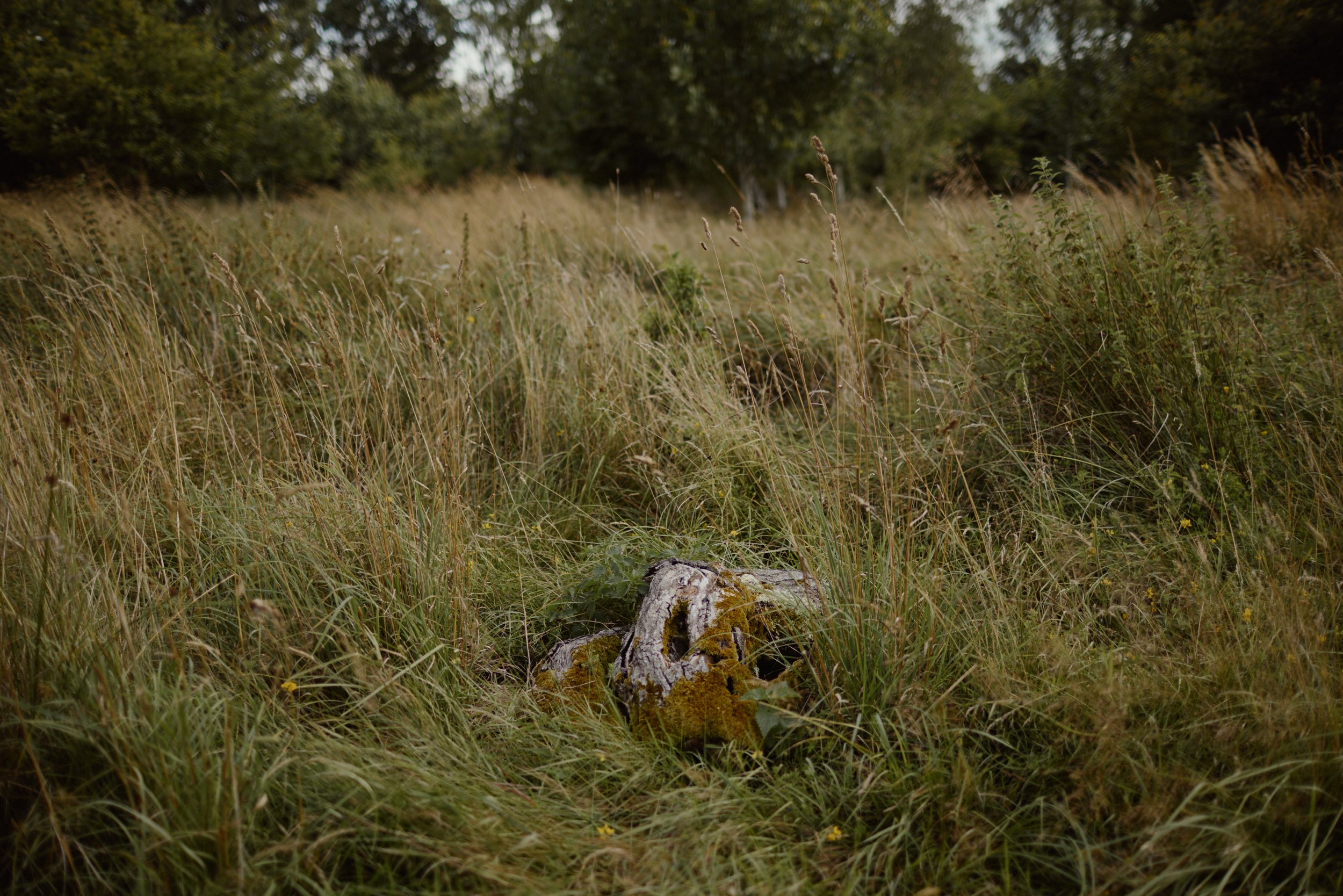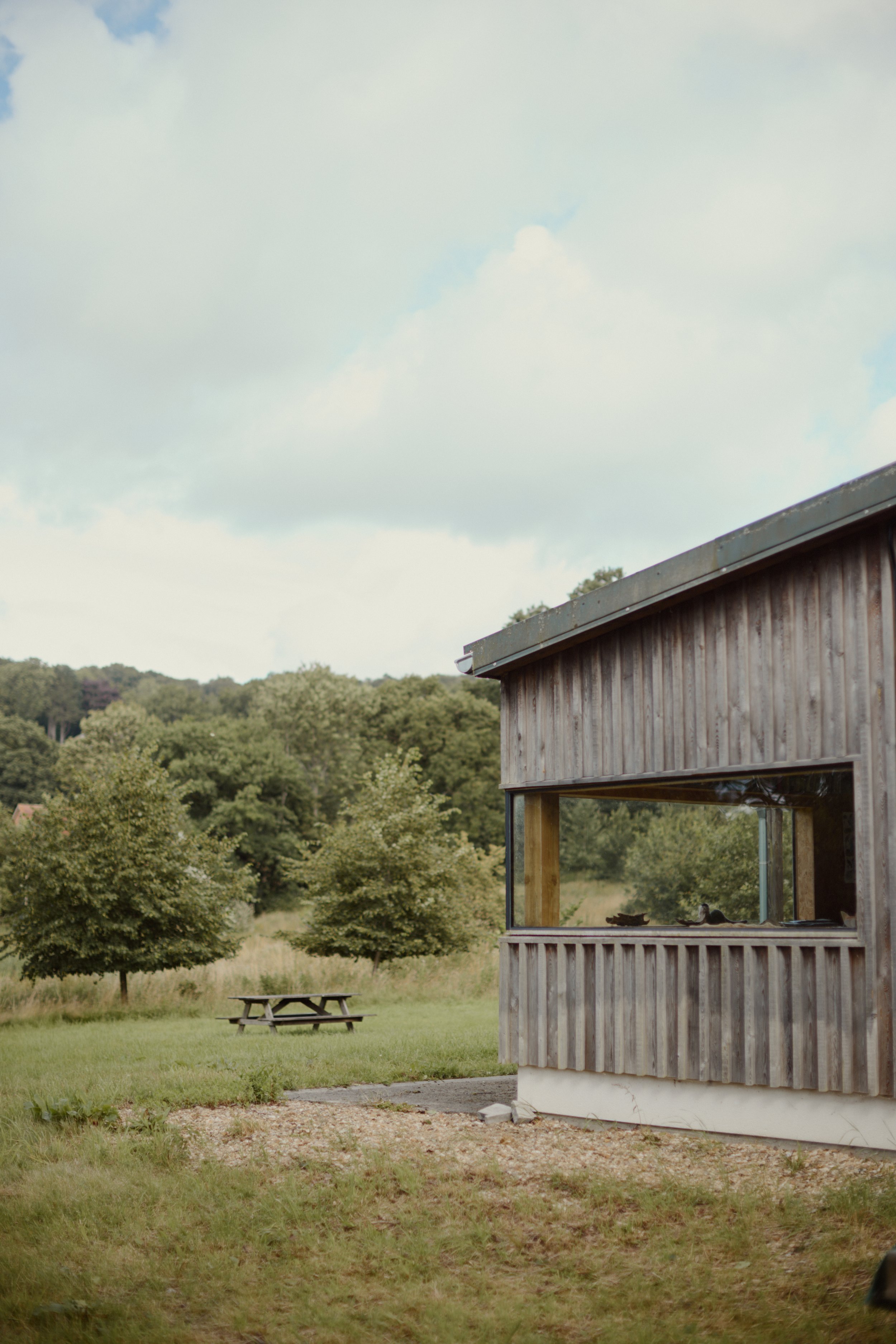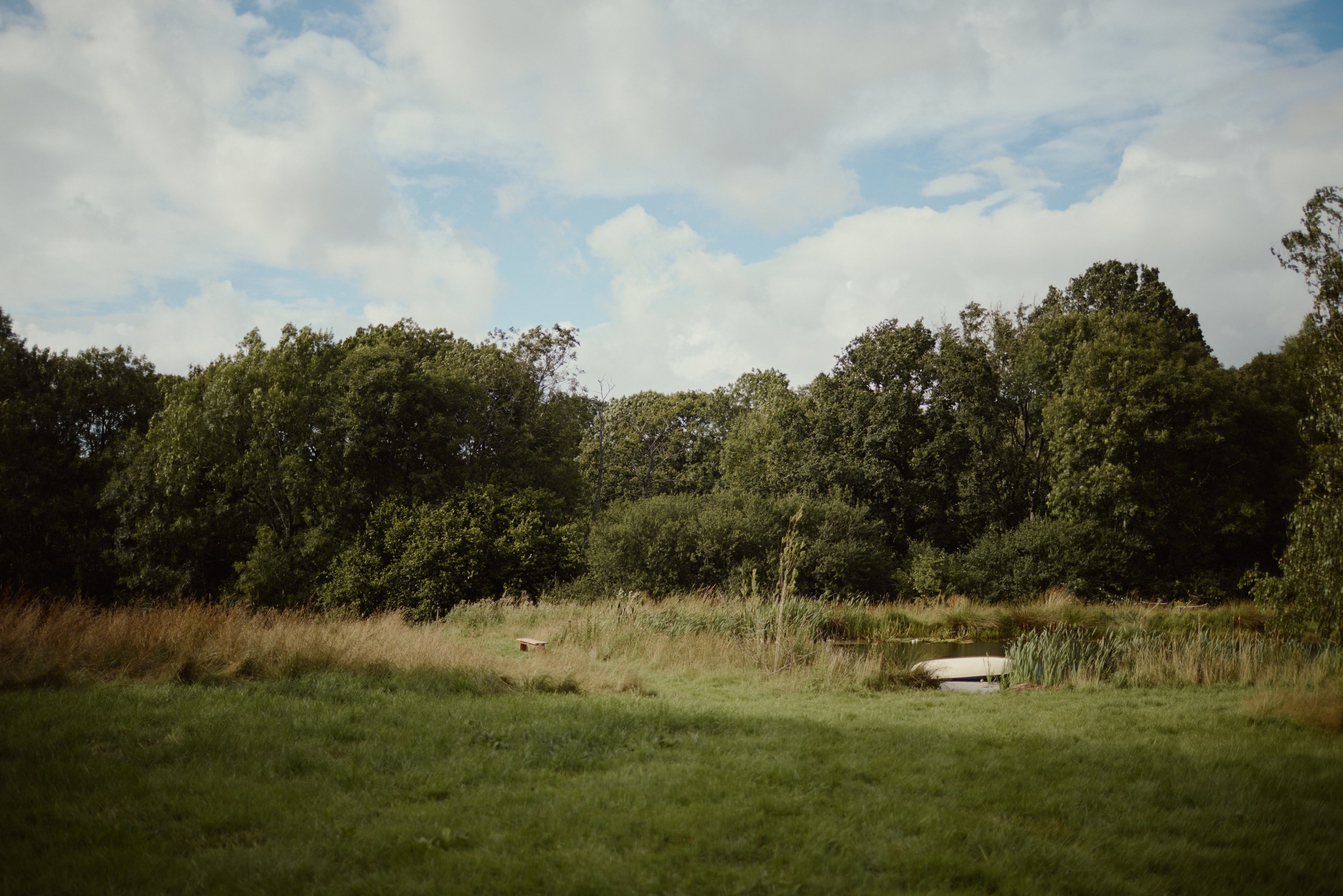Small rewilders network launches in Wiltshire
Photography - Tom Shaw
February 2024
By Sam Peters, Planted Co-Founder
The mere word ‘rewilding’ conjures up notions of vast landscapes, epic vistas and herds of migratory beasties hoofing across plains where humans fear to tread. Think rewilding, think big. Or so we’re told.
And I’m not talking Isabella Tree’s 3,500 acre Knepp Estate in Sussex, I’m talking the 200,000 hectare (500,000 acres) Affric Highlands initiative, incorporating the Kintail mountain range, and glens Cannich, Moriston and Shiel, planned to sweep between the west coast of Scotland and Loch Ness.
Everything about rewilding speaks of scale.
Even Rewilding Britain, an increasingly influential network interested in fighting back against biodiversity decline and climate change by enabling nature to reclaim a post-industrial foothold, tells us size really does matter.
It’s own website states: “Rewilding offers hope. In a nutshell, it is the large-scale restoration of nature until it can take care of itself – and us – again. It’s about restoring nature’s remarkable web of life, including habitats, natural processes and, where appropriate, missing species.”
So perhaps it should come as little surprise that many ordinary folk are being turned off. How can most of us even comprehend projects of this scale, let alone dream of one day having practical hands-on experience of working on and leading a rewilding project?
Add to that growing disquiet from some farmers and other groups, including the game shooting lobby and supported by the national media who argue, somewhat disingenuously, that rewilding projects inevitably rob communities of jobs and other sources of income.
A briefly hopeful narrative has, like so many others, been sucked down into the toxic mire of politically driven culture wars aimed at dividing us all and allowing a diminishingly small number to prosper as we argue amongst ourselves.
Rewilding is for the elite, we are told. Rewilding is anti-commerce, we are told. Rewilding is anti-people, anti-food, anti-community. Anti pretty much anything, according to some. It’s tosh, of course, but it’s out there, and increasingly so.
So it was all rather refreshing, as someone who has seen the latent potential for jobs, commerce and nature since I first read the nominatively determined Tree’s ‘Wilding’ book in 2020, when I attended the inaugural meeting of the Wiltshire Small Rewilders group in a tucked away corner of Wiltshire on a freezing Saturday in January recently.
‘This is how revolutions start,’ beamed Jonathon Thomson, the owner of the 25-acre Underhill Wood Nature Reserve where we met and author of the ‘How to Rewild’ manual.
Thomson, who I first met after inviting myself to his land after listening to Radio 4 interview he gave four years ago describing how he had worked tirelessly to transform what had previously been barren farmland into a rich tapestry of birds, insects, plants, trees and fauna and an educational facility for children and adults, was clearly excited.
He, along with his friends and fellow rewilders Fiona and Richard Cassidy, the owners of a 54 acre community project south of Devizes called Found Outdoors, had made some phone calls and sent some emails and the result was a room full of 32 people, all passionate about reconnecting people with nature and in doing so helping both to thrive.
‘When I first started this 10 years ago, I felt like I was on my own,’ Thomson added. Clearly, he is not anymore.
Besides this interested observer, and the Cassidy’s of course, the room Thomson uses to teach the John Muir Award to children was full of adults from across Wiltshire and beyond, of all different ages and social backgrounds, all interested in enabling nature through the lens of rewilding.
None of them were big landowners. But we were all invested in nature.
After centuries of deforestation, overconsumption and disregard for the environment on an industrial scale, never before has the UK landscape been as depleted or uncared for. The piles of litter which now line all our roads, is just one example of the disregard we seem to have for the landscape within which we live.
Our rivers are full of sewage, our seas full of plastic. And while many of our bellies are still full of food, although even that picture is changing in the UK with growing evidence of child malnutrition directly linked to poverty, many argue it is a matter time before the chemicals we’ve pumped into our overploughed fields turn many of them barren, with their products bereft of nutritional value.
It is an undeniable truth that the United Kingdom is among the most nature-deprived countries on the planet and some fear we have already triggered irreversible cascades of extinction and decline. And that’s not just a national problem, but a global one.
While that view is held by some, enabling a ‘why should I care or act?’ attitude, others, notably those among the newly formed Wiltshire Small Rewilders (WSR) network, which Jonathan, Rich and Fiona named their newly assembled alliance, take a more optimistic view.
It’s a view where urgent change can still be achieved. Where newfound jobs and prosperity can still be generated in harmony with nature and where food security can be protected, not in spite of rewilding, but because of it.
And it’s a view put forward by growing numbers of people. People like Sue Clifford and Angela King, founders of Common Ground, veteran environmentalists who sat like a pair of wide-eyed school girls at the front of Thomson’s classroom, asking questions and taking notes with the enthusiasm of undergraduate students.
People like Charlie, a retired Army veteran turned farmer with a passion for nature and growing understanding of the complicated legal loopholes which need navigating to turn land back to anything like its former glories. People like Joanna, who wants to know what can be done with a small orchard on the edge of her village.
People like Harry, a young, aspiring conservationist and graduate of Thomson’s John Muir courses, who now sees his future advising others on how to turn barren land into a haven for nature. It’s just one of thousands of new jobs, not least from within eco-tourism, agro-ecology and sustainable energy production which could be created by turning currently barren, unproductive farmland back to nature.
With agricultural jobs declining and farming becoming ever more mechanised and reliant on technology, a trend which will inevitably increase as Artificial Intelligence takes hold, the future of our rural communities has never been in more peril. All the while nature declines in silence.
What can and must be done is a source of frenzied debate. The one thing we know is that by carrying on as ‘normal’, doing things ‘as we always have done them’, we are on a pot-holed road to nowhere. Assuming, of course, we believe in decades of established science. I accept, that is not the case for all.
But for those I shared a room with last week, there is an opportunity to do things differently. An opportunity to rebalance our world.
And that desire to effect change for the long-term benefit of both people and planet, of which humanity is a small but extraordinarily influential part, should surely be applauded. On whatever scale.
Ends








